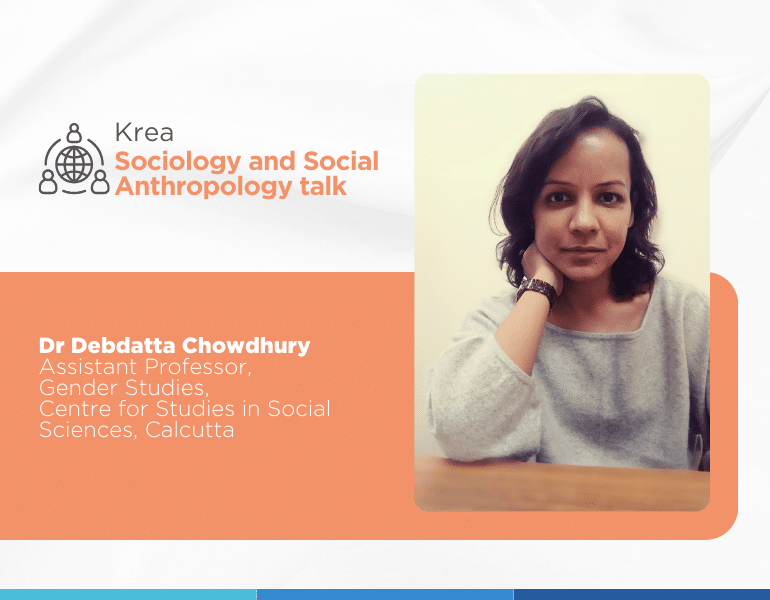
A Talk on ‘Nari Adalats in India: Observations from the Field’ by Dr Debdatta Chowdhury
About the Lecture
India’s National Education Policy of 1986 saw the beginning of the Mahila Samakhya programme (1988), which aimed at grassroots legal literacy primarily for women from India’s rural areas. It also provided the initial framework for an alternative platform for dispute resolution for women survivors of domestic violence (Nari Adalats), envisioned to be led by women trained by lawyers as part of the programme (Nyay Sakhis). This initiative responded to the Family Courts, which began functioning in 1984 as the first government initiatives for an alternative and safe space for women survivors of domestic violence, yet ultimately failed to become either.
Nari Adalat, another government-initiated model for alternative dispute resolution, started functioning in several regions in India, beginning with Gujarat. Over time, the government withdrew from the programme, and civil society organizations took its place, training women from various caste and religious communities in rural areas as para-legals who became equipped to run these Nari Adalats. Their functions range from counseling, mediation, and reconciliation to legal aid. These Nari Adalats are formally founded on ‘feminist visions,’ not only by placing women at the centre of their operations but also by employing a feminist approach to counselling.
Dr Debdatta Chowdhury’s current research aims to understand these grassroots, women-led legal advocacy mechanisms in India as practices of feminist jurisprudence and frameworks of legal pluralism located at the intersection of the formal legal system and informal / traditional justice systems. It seeks to understand how and why these mechanisms might be classified as ‘alternative’ and what makes these platforms particularly ‘feminist.’ In doing so, the research aims to critically engage with the concepts of justice (nyay), resolution (samadhan), and compromise (samjhauta)—concepts upon which much of the socio-legal research in India is premised.
About the Speaker
Dr Debdatta Chowdhury is an Assistant Professor in Gender Studies at the Centre for Studies in Social Sciences, Calcutta. Her research interests include Gender and Law, as well as Border, Migration, and Partition studies, both with a focus on South Asia. Her monograph, titled Identities and Experiences at the India-Bangladesh Border: A Crisis of Belonging, was published by Routledge in 2018. Her research revolves around citizenship discourses and human rights, examining how local and informal socio-legal, political, and cultural mechanisms affect and are reshaped by questions of citizenship and human rights. She has published in national and international journals, such as the International Journal of Human Rights, Society and Culture in South Asia, Indian Journal of Gender Studies, and Review of Social Studies, as well as the Westminster Law Review, among others. Additionally, she has contributed to several national and international edited volumes.
Additional Details
End Date - 25-10-2024
Start Time - 12:00 AM
End Time - 12:00 AM
Show/hide Registration Button -
Venue -